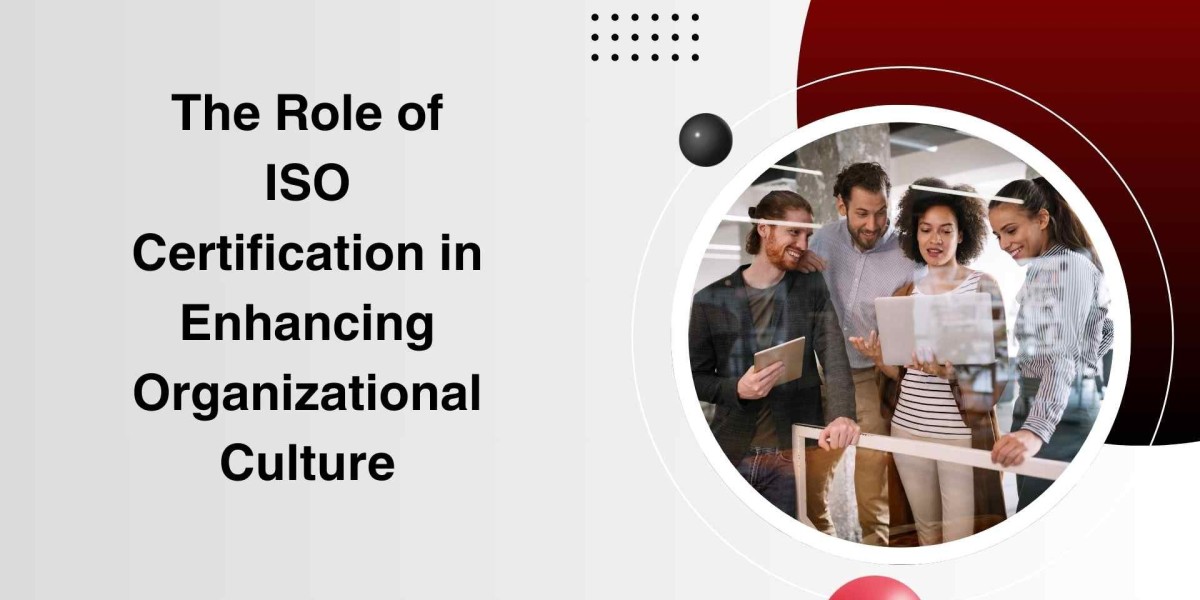ISO certification is often associated with quality management, process improvement, and regulatory compliance. However, one of the less frequently discussed yet equally significant impacts of ISO certification is its role in enhancing organizational culture. Achieving ISO Certification involves a comprehensive process of standardization, documentation, and continuous improvement that can profoundly influence the internal culture of an organization. This article explores how ISO certification contributes to the development of a positive and effective organizational culture.
ISO certification contributes to organizational culture
1. Establishing Clear Standards and Expectations
ISO certification, such as ISO 9001 for quality management or ISO 14001 for environmental management, requires organizations to establish and adhere to specific standards and procedures. This process necessitates:
- Defining Roles and Responsibilities: ISO standards require clear documentation of roles and responsibilities, which helps eliminate ambiguity and ensures that all employees understand their duties and expectations.
- Creating Standard Operating Procedures (SOPs): SOPs are developed to standardize processes, leading to consistency in operations and a shared understanding of how tasks should be performed.
By setting clear standards and expectations, ISO certification helps foster a culture of transparency and accountability. Employees are more likely to feel secure and confident in their roles, knowing exactly what is required of them and how their performance will be evaluated.
2. Promoting Continuous Improvement and Innovation
One of the core principles of ISO certification is continuous improvement. For example, ISO 9001 emphasizes the importance of ongoing evaluation and enhancement of processes. This principle encourages:
- Regular Reviews and Feedback: The certification process involves regular audits and performance reviews, which help identify areas for improvement. Employees are encouraged to provide feedback and participate in problem-solving initiatives.
- Encouraging Innovation: Continuous improvement often leads to the adoption of new technologies and innovative practices. A culture that values improvement is more likely to embrace change and foster creativity.
By embedding continuous improvement into the organizational culture, ISO certification promotes a proactive and innovative mindset. Employees are motivated to seek better ways to perform their tasks, leading to increased efficiency and a more dynamic work environment.
3. Enhancing Employee Engagement and Empowerment
ISO certification processes emphasize employee involvement and engagement. Key aspects include:
- Training and Development: ISO standards require organizations to invest in employee training and development to ensure they have the skills and knowledge needed to perform their roles effectively.
- Employee Participation: Many ISO standards, such as ISO 45001 for occupational health and safety, require employee consultation and participation in decision-making processes related to workplace safety and other critical areas.
When employees are actively involved in shaping policies and processes and have access to relevant training, they feel more valued and empowered. This sense of empowerment boosts morale and fosters a collaborative work environment where employees are more committed to the organization’s success.
4. Building a Culture of Accountability and Responsibility
ISO certification helps create a culture of accountability and responsibility by:
- Implementing Performance Metrics: ISO standards require the establishment of performance metrics and key performance indicators (KPIs) to measure success. This data-driven approach helps hold individuals and teams accountable for their performance.
- Ensuring Compliance: Regular internal and external audits ensure that the organization complies with established standards and regulations. This reinforces the importance of adhering to procedures and maintaining high standards of performance.
A culture rooted in accountability and responsibility ensures that employees understand the impact of their actions on the organization’s overall success. It promotes integrity and reliability, contributing to a positive and professional work environment.
5. Strengthening Communication and Collaboration
ISO certification often leads to improvements in communication and collaboration within the organization. This occurs through:
- Structured Communication Channels: ISO standards require the establishment of formal communication channels to disseminate information and updates. This structured approach ensures that all employees are kept informed and can contribute to discussions.
- Cross-Departmental Collaboration: The emphasis on standardized processes and procedures encourages collaboration between different departments. For example, quality management systems often require coordination between production, customer service, and quality assurance teams.
Effective communication and collaboration foster a sense of unity and teamwork, breaking down silos and promoting a more cohesive organizational culture.
6. Fostering a Customer-Centric Culture
ISO certification, particularly ISO 9001, places a strong emphasis on customer satisfaction and quality management. This focus helps cultivate a customer-centric culture by:
- Understanding Customer Needs: ISO standards require organizations to gather and analyze customer feedback to understand their needs and expectations better. This data is used to improve products and services.
- Enhancing Customer Service: A commitment to quality and customer satisfaction leads to improved customer service practices and a focus on delivering value to clients.
A customer-centric culture ensures that employees are aligned with the organization’s mission to meet and exceed customer expectations. It enhances customer loyalty and drives business success.
7. Reinforcing Ethical Practices and Integrity
ISO certification also promotes ethical practices and integrity within the organization. Key elements include:
- Code of Conduct: Many ISO standards require the implementation of a code of conduct or ethical guidelines. These guidelines help ensure that all employees adhere to high ethical standards and operate with integrity.
- Transparency and Fairness: The certification process emphasizes transparency in operations and decision-making processes. This transparency fosters trust and fairness within the organization.
A strong ethical foundation reinforces a culture of integrity and fairness, contributing to a positive work environment and enhancing the organization’s reputation.
8. Enhancing Organizational Resilience
ISO certification contributes to organizational resilience by:
- Risk Management: Standards such as ISO 31000 for risk management help organizations identify, assess, and mitigate risks. This proactive approach ensures that the organization is better prepared to handle challenges and disruptions.
- Business Continuity Planning: ISO standards often require the development of business continuity plans to ensure that operations can continue in the face of unexpected events.
A resilient organization can adapt to changes and challenges more effectively, maintaining stability and ensuring long-term success.
Also Read: How to get ISO 9001 Certification
Conclusion
ISO certification plays a crucial role in enhancing organizational culture by establishing clear standards, promoting continuous improvement, and fostering employee engagement and empowerment. It strengthens communication, builds a customer-centric approach, and reinforces ethical practices, all while enhancing organizational resilience. By integrating ISO standards into its operations, an organization can create a positive and effective culture that drives success and fosters a supportive and productive work environment. For many businesses, ISO certification is not just about meeting external standards but about cultivating a culture that reflects excellence, integrity, and a commitment to ongoing improvement.







